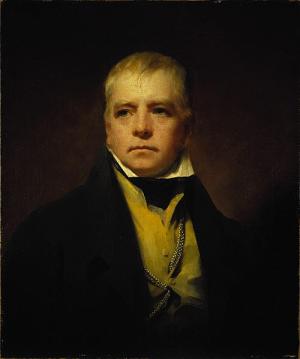
From the awkward access to the lawyer’s mansion, Mannering was induced to form very moderate expectations of the entertainment which he was to receive. The approach looked even more dismal by daylight than on the preceding evening. The houses on each side of the lane were so close that the neighbours might have shaken hands with each other from the different sides, and occasionally the space between was traversed by wooden galleries, and thus entirely closed up. The stair, the scale-stair, was not well cleaned; and on entering the house Mannering was struck with the narrowness and meanness of the wainscotted passage. But the library, into which he was shown by an elderly, respectable-looking man-servant, was a complete contrast to these unpromising appearances. It was a well— proportioned room, hung with a portrait or two of Scottish characters of eminence, by Jamieson, the Caledonian Vandyke, and surrounded with books, the best editions of the best authors, and in particular an admirable collection of classics.
‘These,’ said Pleydell, ‘are my tools of trade. A lawyer without history or literature is a mechanic, a mere working mason; if he possesses some knowledge of these, he may venture to call himself an architect.’
—Walter Scott, Guy Mannering, ch. 37 (1815)


